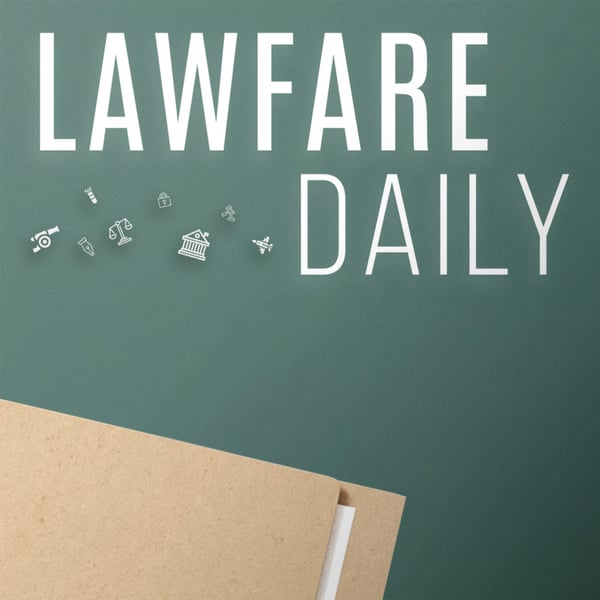How the Press and the Platforms Handled the Hunter Biden Laptop
The Lawfare Podcast
The Lawfare Institute
4.7 • 6.2K Ratings
🗓️ 7 April 2022
⏱️ 60 minutes
🧾️ Download transcript
Summary
We’re taking a look back at one of the stranger stories about social media platforms and the role of the press in the last presidential election. In the weeks before the 2020 election, the New York Post published an “October Surprise”: a set of stories on the business and personal life of Hunter Biden, the son of Democratic presidential candidate Joe Biden, based on emails contained on a mysterious laptop. A great deal was questionable about the Post’s reporting, including to what extent the emails in question were real and how the tabloid had obtained them in the first place. The mainstream press was far more circumspect in reporting out the story—and meanwhile, Twitter and Facebook sharply restricted circulation of the Post’s stories on their platforms.
It’s a year and half later. And the Washington Post just published a lengthy report verifying the authenticity of some of the emails on the mysterious laptop—though a lot still remains unclear about the incident. In light of this news, how should we understand Facebook and Twitter’s actions in 2020?
Washington Post technology reporter Will Oremus weighed in on this question in his own reflection for the paper. This week on Arbiters of Truth, our series on the online information ecosystem, Evelyn Douek and Quinta Jurecic asked him on the show to discuss the story. Did the social media platforms go too far in limiting access to the New York Post’s reporting? How did the mainstream press deal with the incident? What have we learned from the failures of how the press and social media responded to information operations around the 2016 election, and what can we learn from how they behaved differently in 2020?
Support this show http://supporter.acast.com/lawfare.
Hosted on Acast. See acast.com/privacy for more information.
Transcript
Click on a timestamp to play from that location
| 0:00.0 | The following podcast contains advertising to access an ad-free version of the LawFair |
| 0:07.2 | podcast become a material supporter of LawFair at patreon.com slash LawFair. |
| 0:14.7 | That's patreon.com slash LawFair. |
| 0:18.2 | Also, check out LawFair's other podcast offerings, rational security, chatter, LawFair |
| 0:25.6 | no bull and the aftermath. |
| 0:32.6 | They were trying to avoid a repeat of the 2016 hack and leak scenario and this looked |
| 0:40.2 | sort of like that and they didn't want to be implicated in that and so I think that |
| 0:44.7 | probably biased them toward taking action. |
| 0:47.9 | I'm Quinted Jurassic and this is the LawFair podcast April 7, 2022. |
| 0:54.8 | Today we're bringing you another episode of our Arbiter's of Truth series on the online |
| 0:58.5 | information ecosystem and we're taking a look back at one of the stranger stories about |
| 1:03.5 | social media platforms and the role of the press in the last presidential election. |
| 1:08.5 | In the weeks before the 2020 election, the New York Post published on October Surprise. |
| 1:14.3 | A set of stories about the business and personal life of Hunter Biden, the son of Democratic |
| 1:19.1 | presidential candidate Joe Biden, based on emails contained on a mysterious laptop. |
| 1:24.7 | A great deal was questionable about the Post's reporting, including to what extent the emails |
| 1:29.3 | in question were real and how the tabloid had obtained them in the first place. |
| 1:34.2 | The mainstream press was far more circumspecting reporting out the story and meanwhile, Twitter |
| 1:39.8 | and Facebook sharply restricted circulation of the post's stories on their platforms. |
| 1:45.2 | Now it's a year and a half later and the Washington Post just published a lengthy report |
| 1:50.2 | verifying the authenticity of some of the emails on that laptop, although a lot still remains |
| 1:55.2 | unclear about the incident. |
... |
Please login to see the full transcript.
Disclaimer: The podcast and artwork embedded on this page are from The Lawfare Institute, and are the property of its owner and not affiliated with or endorsed by Tapesearch.
Generated transcripts are the property of The Lawfare Institute and are distributed freely under the Fair Use doctrine. Transcripts generated by Tapesearch are not guaranteed to be accurate.
Copyright © Tapesearch 2025.

